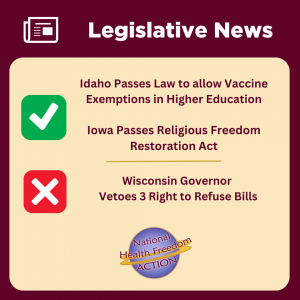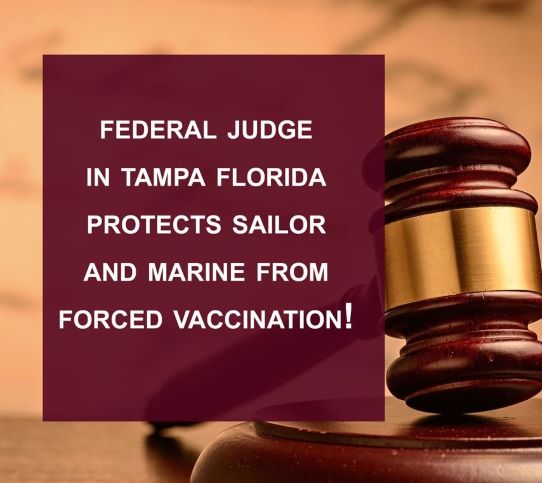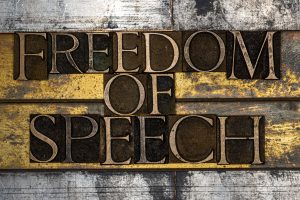

Suing anonymously, “Navy Commander Surface Warfare Officer,” and “Lieutenant Colonel 2” of the U.S. Marine Corp, argued that they were wrongfully denied religious exemptions to the military’s COVID-19 vaccine mandates. On February 18, Judge Steven D. Merryday of the US District Court in Tampa, Florida first ruled in their favor and issued an order granting an injunction against the mandate as applied to these two servicemembers. The decision was based on the Religious Freedom Restoration Act (RFRA), a statutory enhancement of the First Amendment’s Free Exercise of Religion clause. Then, on March 11 the judge issued another order protecting the service members, after the Navy and Marines sought reconsideration.
Commander and Lieutenant Can Serve Without Vaccine
Judge Merryday noted that the RFRA mandates that the military grant any service member holding a sincerely-held religious objection to the COVID-19 vaccination a religious exemption, unless two things are shown:
there must be a compelling government interest that requires the vaccination, and there must be an individualized good faith evaluation that shows that there are no less restrictive means to protect the compelling interest. And under the RFRA, the military has the burden of proving both of these factors. According to Merryday, “In the instance of Navy Commander and Lieutenant Colonel 2, the Navy and the Marine Corps have failed manifestly to offer the statutorily required demonstration that no less restrictive means is available…” Based on this, the judge granted a preliminary injunction as to both service members to allow them to serve without vaccination until the case is resolved.
Crunching the Data: Few Exemptions Being Granted
According to Merryday’s ruling, in a February 4 notice the Navy reported that it received 4,095 COVID-19 vaccine religious exemption requests; of these 3,728 were denied and zero were granted. 1,303 sailors have appealed, and the Navy has denied 81 appeals and granted none. 240 sailors have been separated (fired) for vaccine noncompliance. As of February 3, the Marines report 3,539 initial requests for religious exemption. They have denied 98% of these requests, totaling 3,458 folks. The Corps reports that no initial requests were granted. Individual Marines appealed 1,272 of the denials. 122 appeals have been processed, resulting in three exemptions upon appeal.
The Religious Conflict
Both plaintiffs submitted official Religious Accommodation Requests. Navy Commander testified and “convincingly articulated” that accepting the vaccine, “introduces an unclean substance into his body, which he understands is a gift from God and a temple of the Holy Spirit.” He also objects to the use of fetal cell tissues in vaccine development. Lieutenant Colonel 2 testified similarly that they have a, “sincere religious belief that her body is [a] temple of God and that the compulsory introduction of a foreign substance in to the body” goes against the word of God. She expressed profound opposition to both abortion and to any vaccine created with, “cell lines derived from fetal cells.”
Navy and Marines Fight Against Order
On March 2, the military filed a supplemental declaration in support of a motion to put the injunction on hold, essentially asking the judge to change his mind about the need for a restraining order. Then, on March 11, Judge Merryday wrote a new opinion denying the military’s motion and upholding his original order. He notes that another evidentiary hearing occurred on March 10, and stated that the military’s assertion that the injunction protecting the service members prevented “the normal and lawful exercise of military command” was incorrect. Merryday also notes that his order narrowly and specifically protects Navy Commander and Lieutenant Colonel from vaccination pending the case outcome. And he says that if the Navy has a reason to re-assign Navy Commander that is not retaliatory for him declining vaccination, they may do so. The judge reviewed the original injunction hearing, wherein he believed the testimony of both plaintiffs. The military did not offer any live testimony to rebut this, but instead, “offered a last-minute declaration” from Navy Commander’s superior stating that he had lied in “recent days” and that because of this the Navy lost confidence in his capacity to command.
Navy Commander and Lieutenant Colonel 2 Credible,
Military’s Declarations Not
Merryday had credibility issues with the services’ declarations because, in addition to being late filed, they were not cross-examined, and he suggests that the, “well-known risk of command influence” may be in play. He found it fishy that a “handy” reason to remove Commander from duty at, “a critical moment amidst his effort to assert under RFRA a religious exemption from vaccination,” would arise after his first order. Concluding his March 11 order, the judge denied the request to revisit the February 18 ruling protecting Navy Commander and Lieutenant Colonel 2, noting that their testimony, “was and is credible and persuasive and because, despite two opportunities, the defendants have offered no live testimony to rebut either.”




